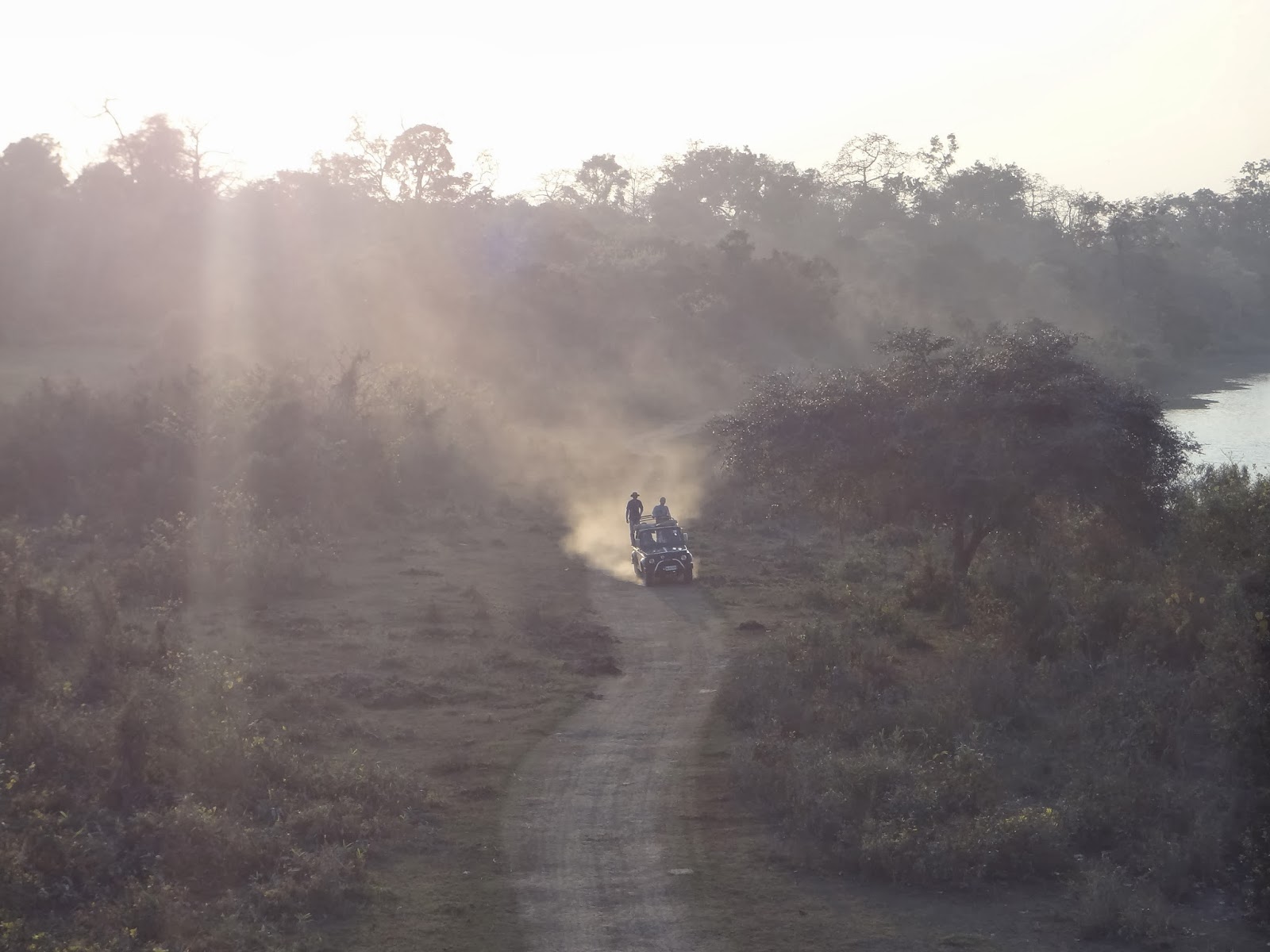I headed from Guwahati to Kaziranga on an Assam State bus, handing my phone to the driver so the manager of the jungle lodge where I would be spending a few nights at could tell him exactly where to drop me off. I was deposited on the side of the street in the dark and told to wait. Soon after, I saw a light moving towards me from 200 meters away. It solidified into a boy holding a flashlight who guided me to my tent at the nicely maintained Nature Hunt Eco Lodge.
After dinner and some drinks with fellow guests around a campfire, I headed back to my tent. The same boy who had retrieved me from the road ran towards me yelling ‘Leopard! Leopard! Come see!’. I did not have a strong inclination to head in the direction of a leopard, but the boy was particularly enthusiastic so I followed him. He pointed his torch into the trees above and pointed to a civet among the branches. It was a significantly smaller jungle cat than a leopard.
The next day I woke at 530 am to go on an elephant safari. The start point was a half an hour jeep ride away from the lodge. I sat atop the elephant. The giant beast slowly ate its way through the grasslands, stopping at the behest of its mahout whenever rhinos or other wildlife were within breathing distance.
After pulling over at the side of the road on the way back from the jeep safari for a quick halt at a roadside temple, the driver told a story about why he prays for safety to the gods every day. Apparently the week before a rhino had munched on the front wheel of a jeep, then continued up until the windscreen, at which point he tossed the car sideways, flinging the passengers of the vehicle to the nearest hospital. The rhino had also hurt his neck in the incident.
I also heard a story of a tiger attacking a forest ranger within the national park. Another ranger rushed to his defence and shot the tiger, but he was punished. The law states that it is illegal to harm tigers, even for self defence, as Kaziranga is their natural habitat and it is humans that are encroaching on their territory.
In the afternoon I went on 3 hour open air jeep safari, spotting pretty much everything but a tiger. The driver did point out fresh tiger prints on top of the tire tracks of the last jeep that had passed the area, and trees where tigers had left claw marks. I was surprised to hear that rhinos could achieve speeds of up to 40-45 km/h, similar to the pace K-girls can reach when they detect me in their vicinity. We had a few close calls with charging rhinos and protective mother elephants but the driver was always quick on the accelerator to keep us out of harms way.
*****
The only way to save a rhinoceros is to save the environment in which it lives, because there's a mutual dependency between it and millions of other species of both animals and plants. ~ David Attenborough
























































